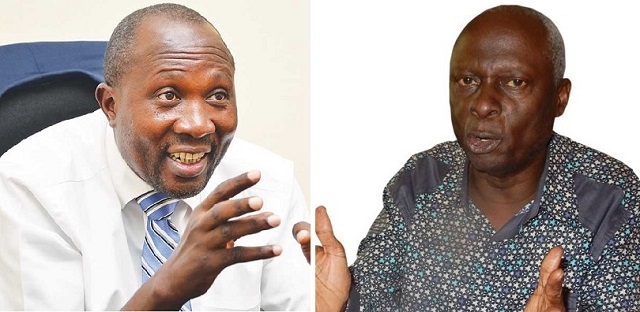
The shuffle, which also saw Bagyenda kicked out, followed a host of internal scandals at the bank; including bungled procurements and recruitment, collapse of critical banking sector systems, allegations of officials colluding with private banks to milk billions of shillings from BoU, undermined roles, and corruption cases and mismanagement.
Mutebile’s transfer of staff was met with defiance, even at board level, and some staff and board members petitioned the Inspector General of Government (IGG) to block the transfers and investigate the central bank.
Matters only normalized after a March 27 meeting at State House Nakasero, where President Yoweri Museveni ordered the IGG not to intervene. He instead directed that a special committee solve the crisis.
Museveni told the officials to keep BoU issues out of the press—a pointer that he was getting concerned about the implications of the bad press surrounding the bank.
This is not the first time talk of Mutebile being kicked out of BoU is emerging. There was wild speculation that Mutebile’s goose was cooked in 2011 when he faced calls for resignation after testifying before Parliament’s adhoc Committee investigating the management of Uganda’s oil sector. Mutebile controversially revealed that President Museveni had directed him to draw an unbudgeted US$750 million from the Treasury to buy Russian fighter jets in the midst of an inflationary economy. The deal was criticised at many levels; it came in after an election, costs appeared inflated to enable skimming off to finance campaigns, and appeared to breach central bank independence.
When his contract expired in 2015, Mutebile is said to have survived because of the prevailing political winds; former Prime Minister Amama Mbabaza announced abruptly that he would challenge Museveni in the 2016 elections and Museveni is said to have sought to placate Mbabazi’s tribesmen by retaining Mutebile at BoU.
But these scandals have over time seen Mutebile, an economist once praised for steering Uganda’s economic stability from the doldrums of the 1980s, turn into a subject of ridicule, branded as a regime lackey, and called to resign by critics.
Further blotches to Mutebile’s tenure at the bank include his almost single-handed building up of the fortunes of city businessman Hassan Basajjabalaba. Between 2005 and 2011, BoU allocated more than Shs300 billion to the tycoon from the Treasury to pay debts, taxes, and subsidise his Kampala International University.
In reality, the older scandals were not of Mutebile’s making—mostly he was following Museveni’s directives. But the latest ghosts haunting Mutebile have very little to do with Museveni. And this might explain why he is now looking to drop his banker.
 The Independent Uganda: You get the Truth we Pay the Price
The Independent Uganda: You get the Truth we Pay the Price






Why is the independent on Bou’case?(i)is it still the pain of the closure of crane bank and mwenda’s closness to sudhir(ii)incase mutebille’ contract is terminated without any satisfactory reason,he can sue for breach of contract(iii)there are many experienced Ugandans in the finance and banking sector who can replace mutebille.